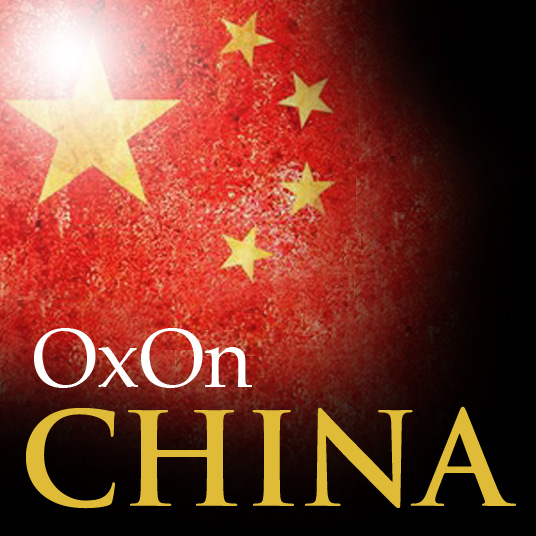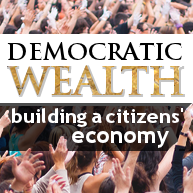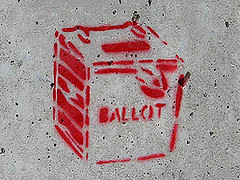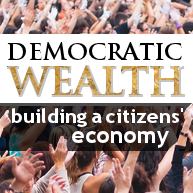
Oxon China
A collaborative project between Politics in Spires and the Oxford China Centre, this blog provides academic analysis on the economic, political and cultural transformations taking place in China.

Republicanism and tax justice
The republican commitment to the view that people can be at liberty only when they are secure – and equally secure – from the exercise of arbitrary power, has significant implications for the ‘domestic’ political economy of states. But it also bears on issues of what we may broadly call ‘transnational’ political economy. That is, that the decisions of actors beyond a democratic state may have important consequences for that state’s establishment, capability and even civic disposition.
For classical republicans, the root of popular sovereignty is not democratic rule but freedom from ‘alien’ rule. This is, indeed, how the republican concept of freedom emerged in ancient Greece – with the political prospect of rule by Persians motivating a focus on the value of being a free people who rule their own city. The most obvious threat here is being subject to the dominion of another people (direct imperial rule) but as republicanism widens its view of domination from the paradigmatic legal form of the master-slave relation, so ‘alien rule’ comes to encompass other possibilities such as political or economic dependency (indirect imperialism).

A new dawn for the Unions? Frances O’Grady and economic democracy
What is the future for trade unions in Britain? Last Friday, forty or fifty of us jammed into an Oxford college seminar room to hear that question answered. It was the annual Clement Attlee Memorial Lecture, at University College where the Prime Minister of the post-war settlement spent his student years. Less to remember the great man, we were there to hear Frances O’Grady, the new TUC General Secretary and the first woman to occupy this most pivotal office for the British labour movement.

A Place beyond the Ballots: Women and the 2014 Elections in Afghanistan
2014 is a pivotal year for Afghan Politics. With the withdrawal of NATO troops, the 2014 elections have the potential to determine the country’s socio-political narrative. How these elections are conducted will impact the challenges and opportunities that Afghanistan will face. More specifically, what would this paradigm shift mean to a section of society that have come to represent one of its most repressed, neglected and disenfranchised aspects: the Afghan women. After decades of war and instability, women have finally been able to participate in politics and other male-dominated spheres of Afghan society. After the fall of the Taliban regime in 2001, the increasing presence of women in the Parliament, occupying seats alongside ‘warlords’ and other prominent male figures, has …

Plans for regional banks are a radical leap for Britain
Outside the banking sector and its critics, not everyone grasped the radicalism of Ed Miliband’s announcement a few weeks ago that the next Labour government will establish a network of regional banks. But this was policymaking at its best, signalling a commitment to radically reform the relationship between finance and the real economy and a determination to make Labour the party of small businesses across the nation.
The British banking system is astonishingly uncompetitive: 89 per cent of all our businesses are dependent on the five major clearing banks. Yet over the last 30 years these banks have become disconnected from the needs of these businesses, seeking quick profits in the City and in the property markets rather than long term investments in the industries and regions outside the southeast. Duncan Weldon has calculated that, in the decade before the crisis, 84% of the money lent to British residents by British banks went into property and financial services.

The Alaska Model: a citizen’s income in practice
Basic income is a regular unconditional cash grant paid to all citizens without any means test or work requirement. It’s often dismissed as a utopian idea.
However, a basic income, or something very close to it, exists today in Alaska. It’s called the Permanent Fund Dividend (PFD) or sometimes “the Alaska Dividend.”
The PFD has been paying annual dividends to Alaskans since 1982 with no conditions except citizenship, residency, and the willingness to fill out a form. After following the Alaska Dividend since 1999, and I want to share six lessons that supporters of progressive economic policy should learn from what I call “the Alaska model,” but first some basic background.
In 1956, Alaska ratified a constitution recognizing joint ownership of unoccupied land and natural resources. In 1967, North America’s largest oil reserve was discovered in state owned areas on Alaska’s North Slope. In 1976, a state referendum created the Alaska Permanent Fund (APF), a portfolio of diversified assets, into which the government would invest a small part of the state’s oil revenue each year as a way to turn the temporary stream of oil money into permanent wealth. Back then, the state had no plan for what to do with the APF. In 1982, the state government finally decided to distribute part of the returns from that fund as a yearly dividend, and the Alaska model was born. The APF continues to rise with yearly deposits from oil revenue, and it goes up and down with the financial markets.

Anarchists and Republicans: Bedfellows?
In 1797 two of the foremost radical social critics of their day Mary Wollstonecraft and William Godwin married in order to legitimate their unborn child. Both opposed the institution of marriage but they hoped to avoid the scandal and prejudice that had accompanied Wollstonecraft’s first illegitimate child. Their brief relationship was one of the happiest periods in their often tumultuous lives but was tragically cut short by Wollstonecraft’s death in childbirth.[i] Wollstonecraft’s powerful feminist critique of the patriarchal beliefs and institutions of her day drew on many republican themes, extending the traditional republican concern with political domination to the social domination of husbands over wives.[ii] Godwin’s philosophical rejection of external authority and his exposition of a decentralized voluntary society free from the state has led many to classify him as an early anarchist thinker.[iii] If their marriage could be considered the highpoint of relations between republicanism and anarchism, the two traditions have since followed very different ideological and political paths. In what follows I consider what, if any, potential overlap there is today between these two often neglected political theories.

Freedom and Meaningful Work: An exploration
Meaningful work is an ideal with a long history. It retains a strong hold upon the popular imagination. Whether it is work which is useful, involving, worthwhile, satisfying or inspirational, we all know meaningful work when we see it. Generally, we think of meaningful work as a luxury good or scarce resource – something a few lucky people possess, and which is simply a matter of private interest. We do not think of meaningful work as important for social development, or take seriously the possibility that all work ought to be meaningful. This is despite the fact that having to do non-meaningful work harms a person – including poor health outcomes, frustrated human capabilities, diminished life chances, or even the absence of a sense that life is worth living. And in any case, since most of the work we do is irretrievably dull, repetitive or subject to hierarchical authority, hankering after meaningful work for everyone seems unattainably utopian.









